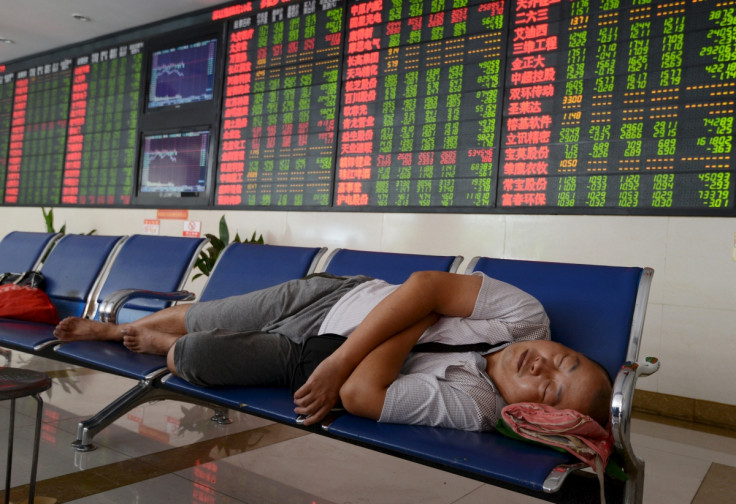Most Asian markets in red on weak Chinese factory data

Most Asian markets were in the red as China reported that its factory activity declined for an eighth straight month in October. The fall in Chinese factory data as shown by the Caixin purchasing manager's index (PMI), despite the government's repeated stimulus efforts, indicates growing trouble lingering in the world's second-largest economy.
The PMI reading for October was 48.3. A reading above 50 suggests that the manufacturing sector is expanding, a reading below fifty indicates the opposite. The index is based on a survey of manufacturing firms across China.
The Shanghai Composite Index was trading at 3349.90, down 0.97%, on 2 November, while Australia's S&P/ASX 200 declined 1.40% to 5165.80. Hong Kong's Hang Seng was down 0.90% at 22,434.61. Two executives from a Hong Kong-owned fund were arrested by police for allegedly pocketing hundreds of millions of dollars from irregular futures trades, reported state media.
Japan's Nikkei 225 was down 2.03% at 19,083.10. Bank of Japan, in its policy meet last week, maintained its monetary policy, belying analysts' expectations that the Japanese central bank would introduce further stimulus programmes to drive growth.
Hikaru Sato, a senior technical analyst at Daiwa Securities. said, "Global market worries triggered selling while the market was prone to profit-taking from last week's gains."
South Korea's KOSPI was up 2034.79, up 0.26%. India's BSE was trading lower by 0.76% at 26,454.12. MSCI's broadest index of Asia-Pacific shares outside Japan lost 0.6%.
WTI Crude oil climbed 1.14% to $46.59 a barrel, while Brent was up 1.53% at $49.56 a barrel.
The focus now is on a series of U.S. data, including the all-important non-farm payrolls due 6 November. The Fed's reaction to this data will indicate its likely stance on raising interest rates at its policy meeting in December.
While the central banks in Europe and China have signalled a readiness to introduce more stimulus programmes, the US Federal reserve inn October kept rates unchanged, and signalled it could increase its short-term in December.
© Copyright IBTimes 2024. All rights reserved.





